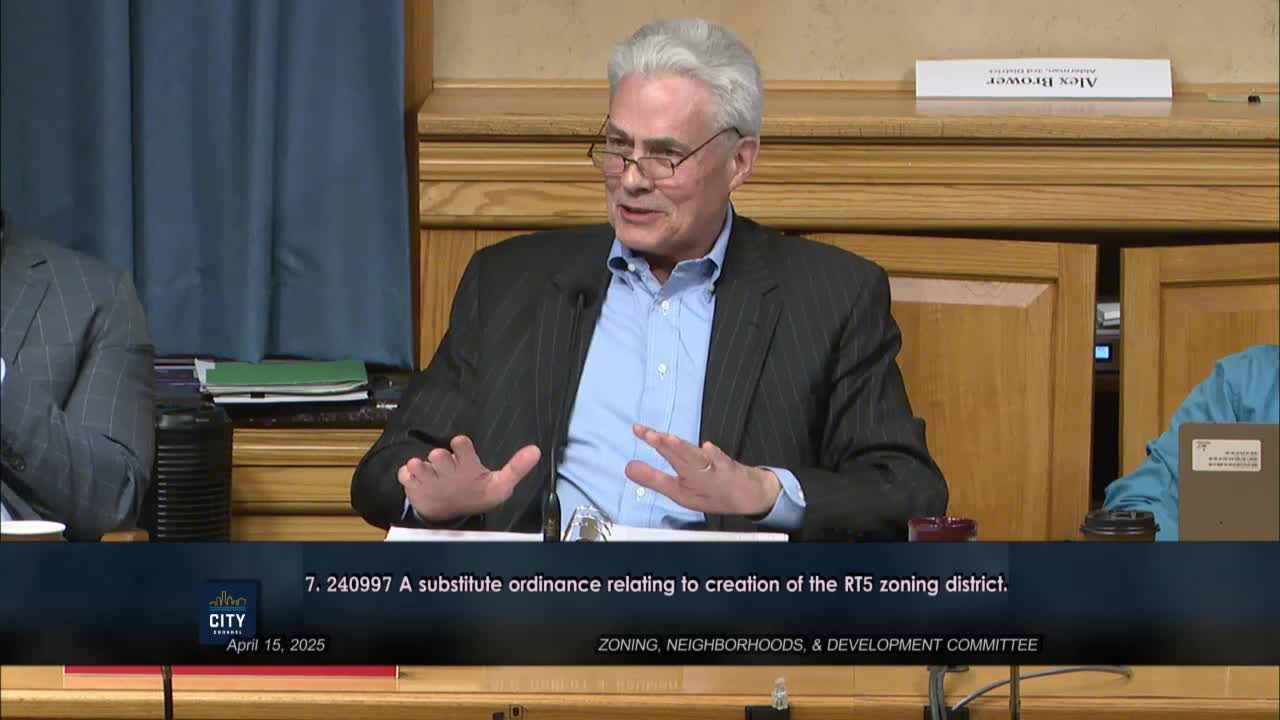Article not found
This article is no longer available. But don't worry—we've gathered other articles that discuss the same topic.
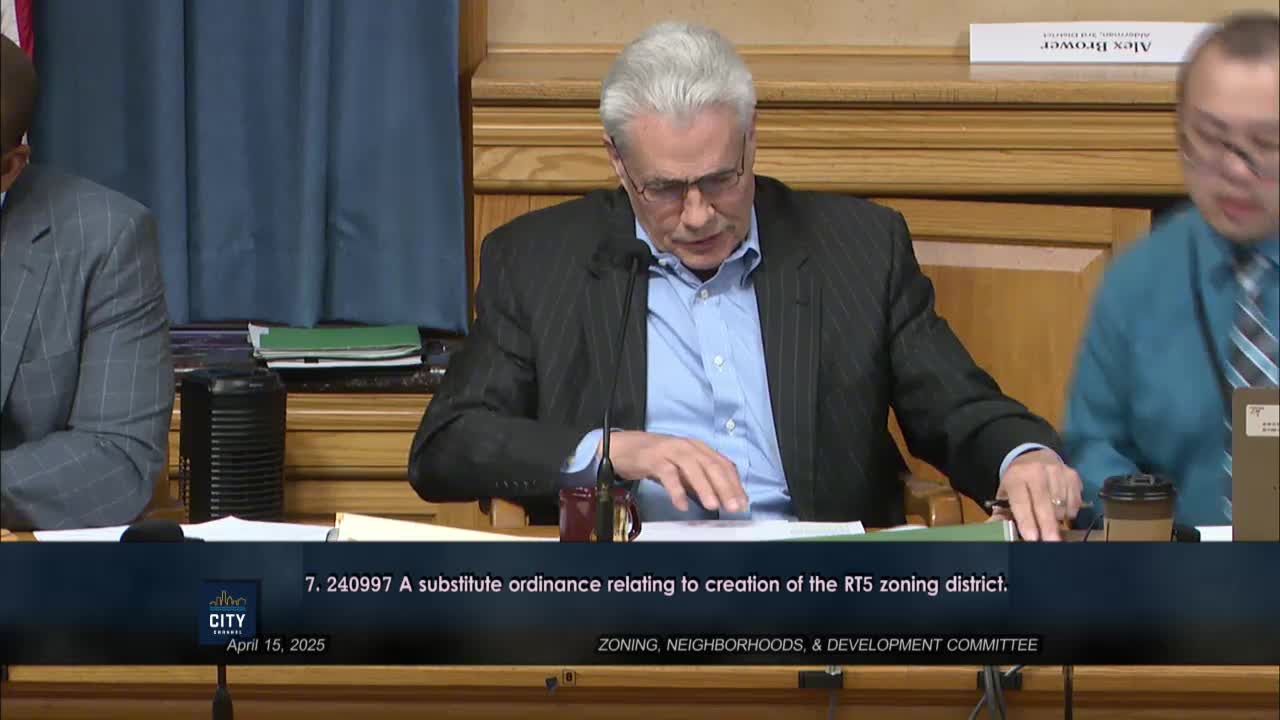
Committee grants permanent historic designation to Central City Plaza; community and descendants push to preserve Black‑owned commercial landmark
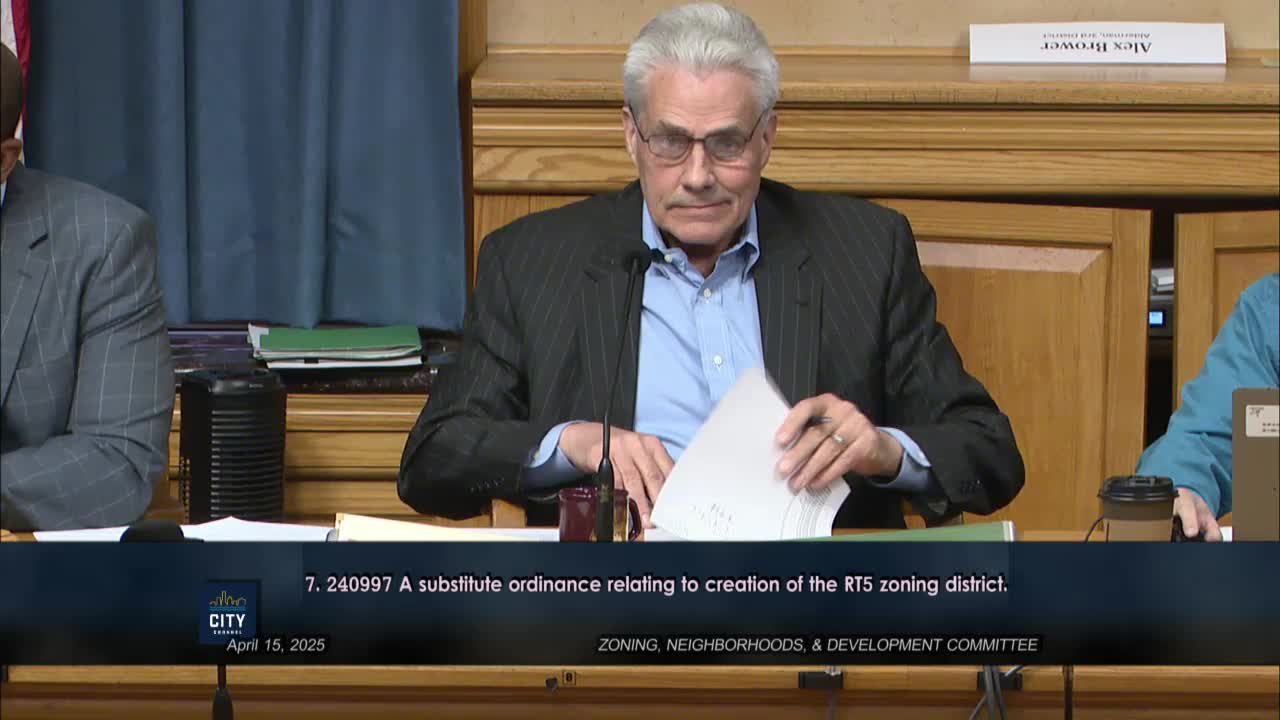
Council adopts 'RT5' zoning text to allow a pathway for 5–8 unit buildings; sponsors and opponents press for stronger neighborhood engagement
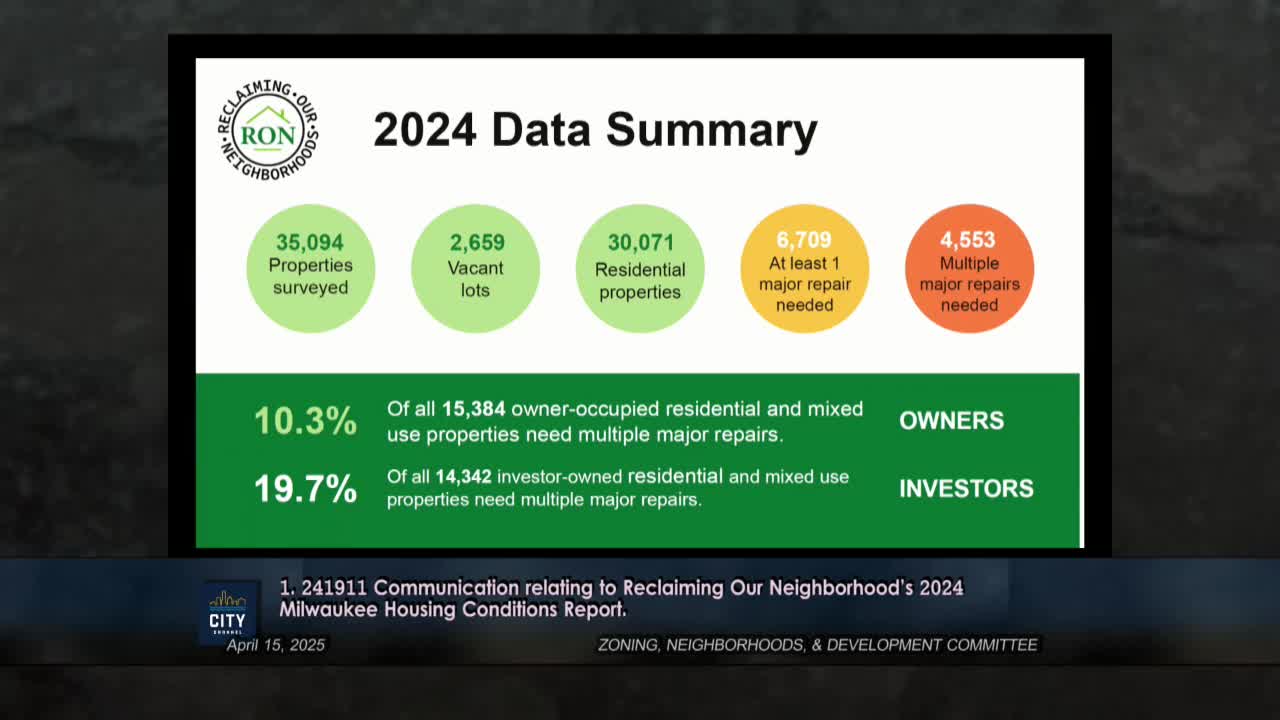
Community survey finds 22% of homes in Reclaiming Our Neighborhoods areas need major exterior repairs; coalition urges enforcement and homeowner aid
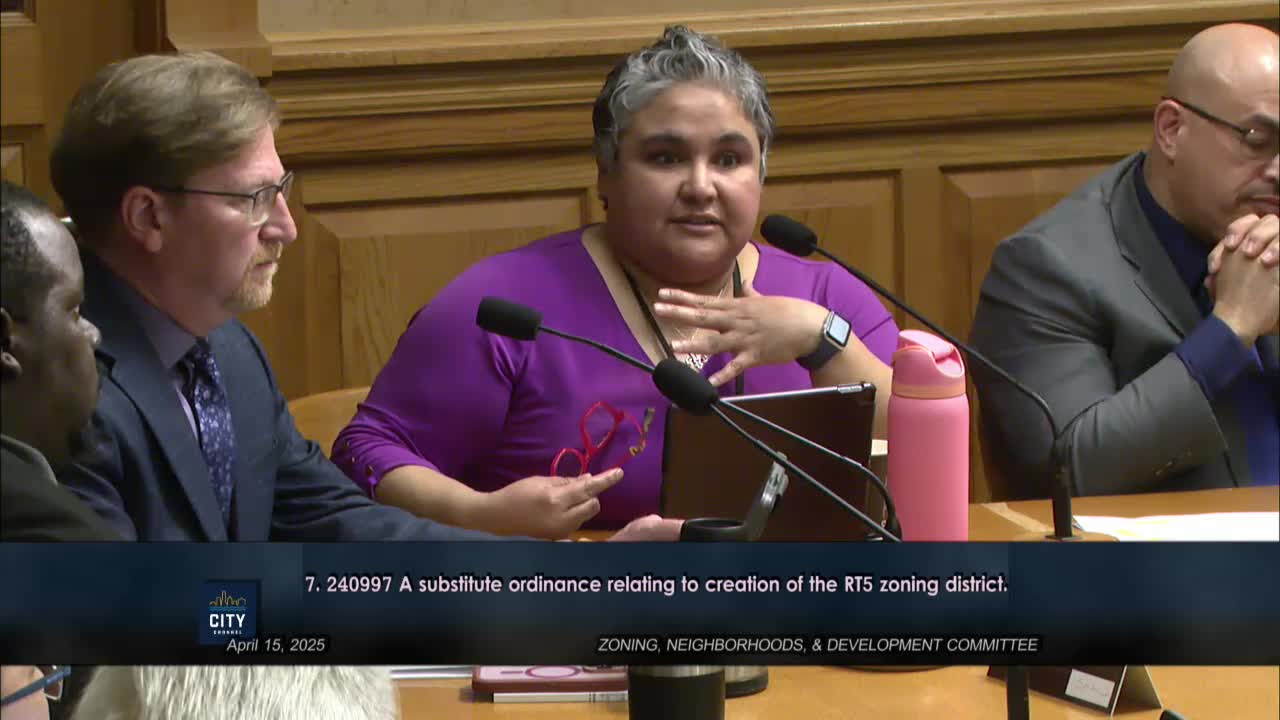
Council hearing exposes split over using TIF for workforce housing; DCD warns files premature, developers press for clearer, faster guidance
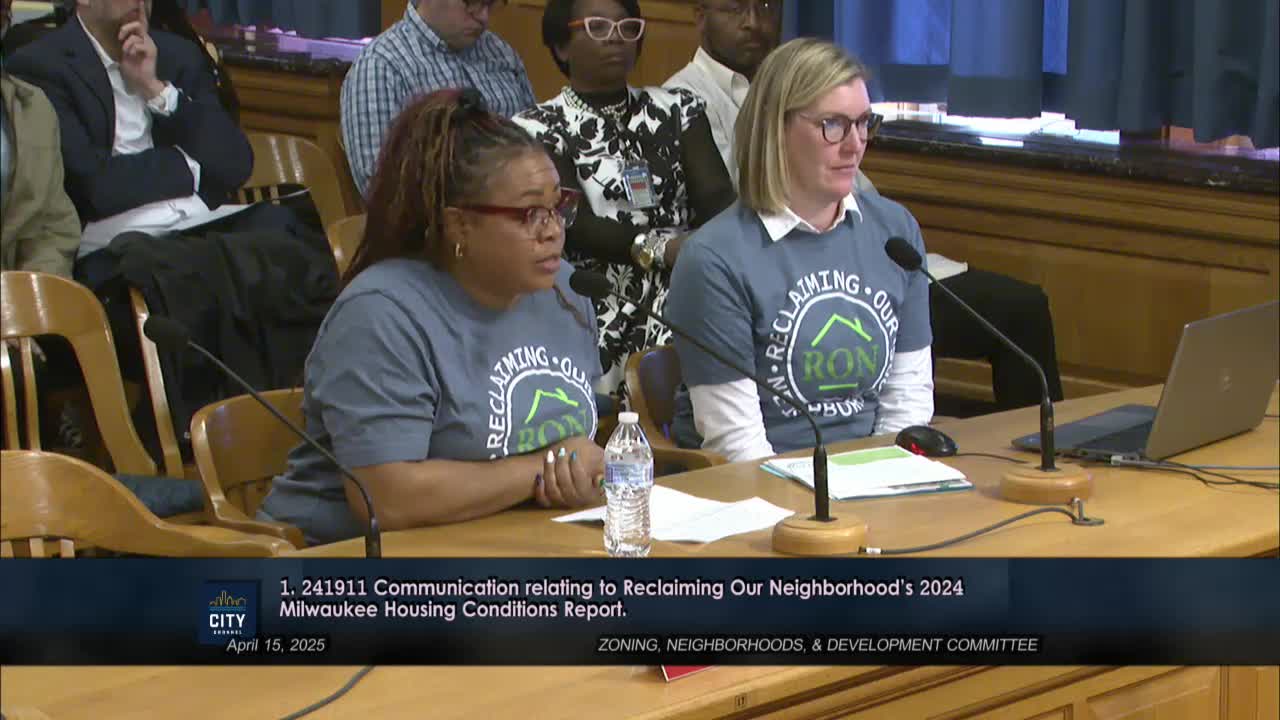
Committee approves historic designation for Stolenwork–Correa house, the city’s first locally recognized site tied to a Latino family
